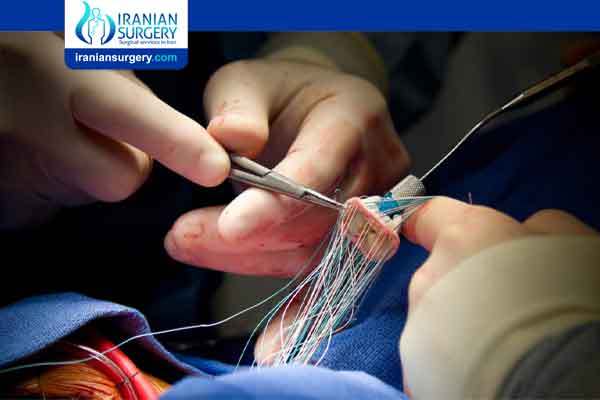Is a heart valve replacement major surgery?
What is the success rate of heart valve replacement surgery?
Heart valve replacement surgery risks
After heart valve replacement surgery
How long is heart valve replacement surgery
During the procedure in hospital, the surgeon opens your chest to get to your heart and the diseased valve. The procedure varies from patient to patient, lasting a minimum of two hours and often longer. During this time, you are asleep under general anesthesia.
Read more about : Iranian eye surgeons restored vision to the eyes of an Omani child.
Read more about : Coronary artery bypass surgery (CABG) success story
Read more about : Heart Bypass Surgery
Read more about : Heart Valve Replacement Surgery
Read more about : Open heart surgery
Is a heart valve replacement major surgery?
Heart valve surgery is open-heart surgery through the breastbone, into the chest, an aortic valve replacement is a major operation and will only be carried out if you're well enough to have surgery.
Read more about: Heart valve replacement recovery
What is the success rate of heart valve replacement surgery?
A defective valve has only two leaflets, so it's called a bicuspid valve. A recent study found that aortic valve replacement surgery has a 94 percent five-year survival rate.
Read more about: Heart valve replacement surgery risks
Heart valve replacement surgery risks
Possible heart valve surgery risks include:
- Bleeding
- Heart attack
- Infection
- Valve dysfunction affecting replaced valves
- Irregular heart rhythm (arrhythmia)
- Stroke
- Death
After heart valve replacement surgery
After your heart valve surgery, you'll generally spend a day or more in the intensive care unit (ICU). You'll be given fluids and medications through intravenous (IV) lines. Other tubes will drain urine from your bladder and fluid and blood from your chest. You might be given oxygen through a mask or nasal prongs in your nose.
After you complete your stay in the ICU, you'll be moved to a progressive care unit for several days. The time you spend in the ICU and hospital will depend on your condition and surgery.
Your treatment team will monitor your condition and watch for signs of infection in your incision sites. Your team will check your blood pressure, breathing and heart rate. The team will also work with you to manage any pain you have after surgery.
Your treatment team will instruct you to walk regularly to gradually increase your activity, to cough and to do breathing exercises as you recover.
Your doctor will give you instructions to follow during your recovery, such as watching for signs of infection in your incisions, properly caring for incisions, taking medications, and managing pain and other side effects after your surgery.
Read more about: How serious is heart valve replacement surgery


